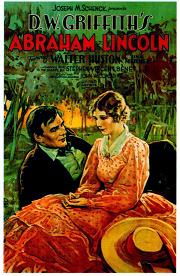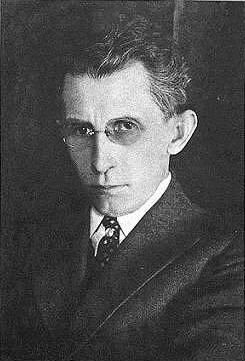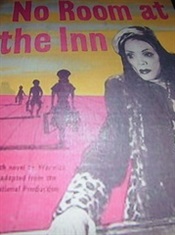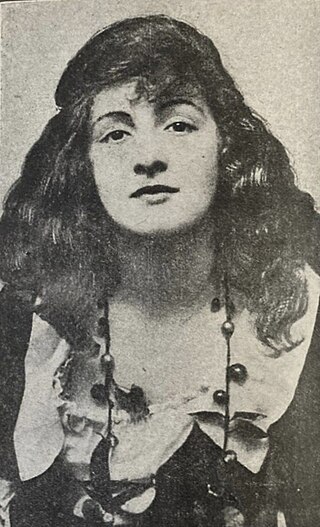
Little Women is a coming-of-age novel written by American novelist Louisa May Alcott, originally published in two volumes, in 1868 and 1869. The story follows the lives of the four March sisters—Meg, Jo, Beth, and Amy—and details their passage from childhood to womanhood. Loosely based on the lives of the author and her three sisters, it is classified as an autobiographical or semi-autobiographical novel.

Alice Brady was an American actress of stage and film. She began her career in the theatre in 1911, and her first important success came on Broadway in 1912 when she created the role of Meg March in the original production of Marian de Forest's Little Women. As a screen actress she first appeared in silent films and was one of the few actresses to survive the transition into talkies. She worked until six months before her death from cancer in 1939. Her films include My Man Godfrey (1936), in which she plays the flighty mother of Carole Lombard's character, and In Old Chicago (1937) for which she won the Academy Award for Best Supporting Actress.

Little Women is a 1994 American coming-of-age historical drama film directed by Gillian Armstrong. The screenplay by Robin Swicord is based on Louisa May Alcott's 1868–69 two-volume novel of the same title, the fifth feature film adaptation of the classic story. After a limited release on December 25, 1994, it was released nationwide four days later by Columbia Pictures.

Abraham Lincoln, also released under the title D. W. Griffith's "Abraham Lincoln", is a 1930 pre-Code American biographical film about Abraham Lincoln directed by D. W. Griffith. It stars Walter Huston as Lincoln and Una Merkel, in her second speaking role, as Ann Rutledge. The script was co-written by Stephen Vincent Benét, author of the Civil War prose poem John Brown's Body (1928), and Gerrit Lloyd. This was the first of only two sound films made by Griffith.

Sir John Lavery was an Irish painter best known for his portraits and wartime depictions.

Little Women is a 1933 American pre-Code drama film directed by George Cukor, and starring Katharine Hepburn, Joan Bennett, Frances Dee, and Jean Parker. The screenplay, written by Sarah Y. Mason and Victor Heerman, is based on the 1868-1869 two-volume novel of the same name by Louisa May Alcott.

Jules Furthman was an American magazine and newspaper writer before working as a screenwriter. Pauline Kael once wrote that Furthman "has written about half of the most entertaining movies to come out of Hollywood "

Mabel Ballin, was an American motion-picture actress of the silent film era.

Violet Mersereau was an American stage and film actress. Over the course of her screen career, Mersereau appeared in over 100 short and silent film features.

Daisy Fay Buchanan is a fictional character in F. Scott Fitzgerald's 1925 novel The Great Gatsby. The character is a wealthy socialite from Louisville, Kentucky who resides in the fashionable town of East Egg on Long Island during the Jazz Age. She is narrator Nick Carraway's second cousin, once removed, and the wife of polo player Tom Buchanan, with whom she has a daughter. Before marrying Tom, Daisy had a romantic relationship with Jay Gatsby. Her choice between Gatsby and Tom is one of the novel's central conflicts. She was described by Fitzgerald as a "golden girl".

James Searle Dawley was an American film director, producer, screenwriter, stage actor, and playwright. Between 1907 and the mid-1920s, while working for Edison, Rex Motion Picture Company, Famous Players, Fox, and other studios, he directed more than 300 short films and 56 features, which include many of the early releases of stars such as Douglas Fairbanks, Mary Pickford, Pearl White, Marguerite Clark, Harold Lloyd, and John Barrymore. He also wrote scenarios for many of his productions, including one for his 1910 horror film Frankenstein, the earliest known screen adaptation of Mary Shelley's 1818 novel. While film direction and screenwriting comprised the bulk of Dawley's career, he also had earlier working experience in theater, performing on stage for more than a decade and managing every aspect of stagecraft. Dawley wrote at least 18 plays as well for repertory companies and for several Broadway productions.
Milestones is a 1916 British silent drama film directed by Thomas Bentley and starring Isobel Elsom, Owen Nares and Minna Grey. It is an adaptation of the 1912 West End play Milestones by Arnold Bennett and Edward Knoblock. Four years later an American film of the same title was released. As of August 2010, the film is listed as one of the British Film Institute's "75 Most Wanted" lost films.

No Room at the Inn is a 1945 play by Joan Temple that became a 1948 film directed by Daniel Birt. Both play and film are presented in flashback mode and share the same subject matter – cruelty, neglect and mental and physical abuse meted out to evacuee children during World War II. Temple's attack on those who turn a blind eye to child abuse, be they public officials or private individuals, was considered frank and uncompromising in its time.
Albert Victor Bramble (1884–1963) was an English actor and film director. He began his acting career on the stage. He started acting in films in 1914 and subsequently turned to directing and producing films. He died on 17 May 1963.
The Valley of Fear is a British silent adventure film of 1916 directed by Alexander Butler and starring Harry Arthur Saintsbury, Daisy Burrell and Booth Conway. The film is an adaptation of the 1915 novel, The Valley of Fear by Arthur Conan Doyle featuring Sherlock Holmes. This is now considered a lost film.

Daisy Burrell was a British stage actress and Edwardian musical comedy performer who also appeared as a leading lady in silent films and in pantomime.
Just a Girl is a British silent motion picture of 1916 directed by Alexander Butler and starring Owen Nares, Daisy Burrell and Paul England. A romance, it was adapted by Harry Engholm from Charles Garvice's novel of the same title published in 1895.
The Last Rose of Summer is a British silent motion picture of 1920 directed by Albert Ward, produced by G. B. Samuelson, and starring Owen Nares and Daisy Burrell. A drama, it was written by Roland Pertwee, based on a novel by Hugh Conway.

Seven Days Leave is a 1930 American Pre-Code drama film produced and directed by Richard Wallace and starring Gary Cooper, Beryl Mercer, and Daisy Belmore.
Florence Nelson was an English stage and film actress of the silent film era.













